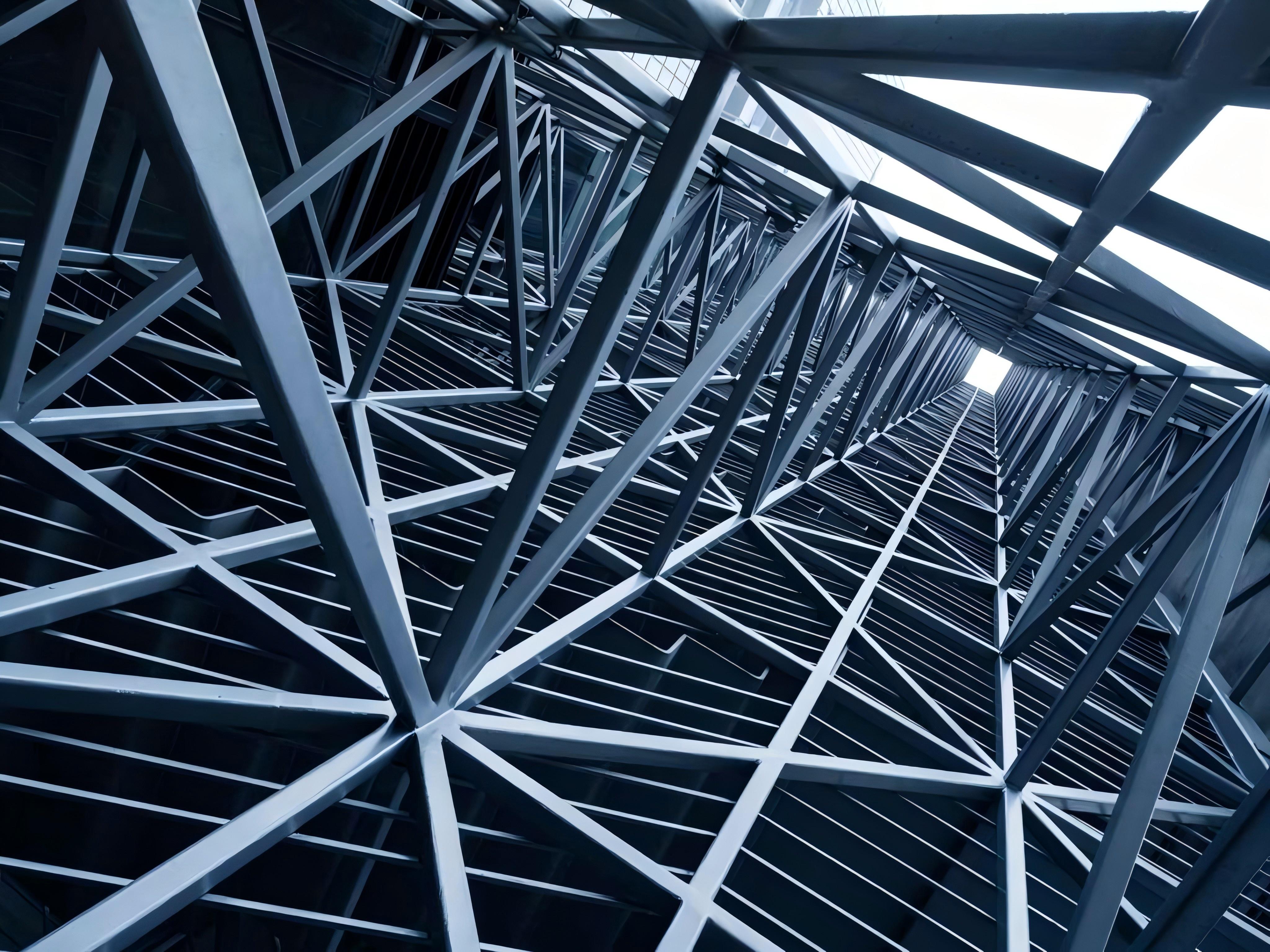- NEWS -

Steel Structures in Art Constructions: Fusion of Engineering and Creativity
1. Introduction
Steel has revolutionized modern architecture, but its influence extends far beyond functional buildings—it has become a powerful medium for artistic expression. From sculptural installations to interactive art exhibitions, steel structures offer unparalleled strength, flexibility, and visual impact. This article explores how artists, architects, and engineers collaborate to create awe-inspiring steel art constructions, examining:
✔ Why steel is the preferred material for artistic structures?
✔ Key applications in public art, sculptures, and installations.
✔ Iconic examples of steel-based art around the world.
✔ Future trends in steel art constructions.
2. Why Steel is Ideal for Artistic Constructions?
Steel offers unique advantages for innovative, large-scale, and unconventional artistic projects:
???? Strength & Durability
Supports massive free-standing sculptures (unlike fragile materials like glass or ceramics).
Resists weathering, corrosion, and seismic forces (ideal for outdoor installations).
???? Flexibility in Design
Can be molded into curves, waves, and abstract shapes (plasma-cut, laser-welded, or forged).
Enables kinetic (moving) and interactive art pieces.
???? Sustainability & Recyclability
100% recyclable (encourages eco-conscious art projects).
Lightweight compared to stone/concrete (reduces foundation costs).
???? Aesthetic Versatility
Polished, rusted (Corten steel), or painted finishes for different artistic effects.
Transparency (mesh, perforated steel) for light-shadow interplay.
3. Key Applications of Steel in Art Constructions
???? 1. Monumental Public Sculptures
Steel’s ability to support large, gravity-defying forms makes it ideal for landmark sculptures. Examples:
✔ "Cloud Gate" (Chicago, USA) – Nicknamed "The Bean," this highly polished stainless steel structure reflects the city skyline.
✔ "The Kelpies" (Scotland) – Two 30-meter-tall steel horse heads showcasing intricate metal fabrication.
????️ 2. Architectural Sculptures (Art Integrated with Buildings)
Many modern buildings incorporate steel as both structural and decorative elements:
✔ Guggenheim Museum Bilbao (Spain) – Frank Gehry’s titanium-clad steel curves redefine museum architecture.
✔ Louis Vuitton Foundation (Paris) – Steel-framed "sails" create a futuristic art space.
???? 3. Interactive & Kinetic Art Installations
Steel’s rigidity and machinability allow for movable, sensor-driven installations:
✔ "Wind Sculptures" by Yinka Shonibare – Stainless steel structures that sway like fabric in the wind.
✔ "ArcelorMittal Orbit" (London) – A twisted steel tower with observation decks and LED light displays.
???? 4. Land Art & Environmental Sculptures
Artists use steel’s rustic appeal (via Corten steel) to blend art with nature:
✔ "The Angel of the North" (UK) – A 66-foot steel angel with a rusted patina, designed to withstand harsh winds.
✔ Richard Serra’s "Tilted Arc" – A site-specific steel curve that manipulates space perception.
✨ 5. Light-Based & Illuminated Steel Art
Perforated or laser-cut steel sheets filter light, creating dramatic shadow art:
✔ "The Vessel" (New York) – A honeycomb-like climbable sculpture with reflective steel surfaces.
✔ "Light Pavilion" (China) – Steel panels with LED backlighting for dynamic nighttime displays.
4. Iconic Steel Art Structures Around the World
Artwork Location Key Feature
Chicago Bean ("Cloud Gate") Chicago, USA Mirror-finished seamless steel
The Angel of the North Gateshead, UK Weathering steel wingspan (54m)
The Kelpies Falkirk, Scotland Gigantic steel horse sculptures
ArcelorMittal Orbit London, UK Twisted red steel tower
Guggenheim Bilbao Spain Curved titanium-clad steel panels
Burj Khalifa Spire Dubai, UAE Stainless steel pinnacle
Louis Vuitton Foundation Paris, France Glass sails on steel skeleton
5. Challenges in Steel Art Construction
⚠️ Fabrication Complexity
Precision welding & bending needed for smooth curves (e.g., Anish Kapoor’s sculptures).
Weight management for installations (crane logistics).
⚠️ Corrosion & Maintenance
Corten steel develops a protective rust layer (no painting needed).
Stainless steel requires regular polishing (e.g., "Cloud Gate").
⚠️ Structural Engineering Requirements
Wind load calculations for large sculptures (e.g., "Angel of the North").
Foundations for stability (especially in seismic zones).
6. Future Trends in Steel Art Construction
???? 1. 3D-Printed Steel Sculptures
AI-generated designs with unprecedented complexity (e.g., algorithmic art).
Reduced welding (lattice structures built layer-by-layer).
???? 2. Smart Steel (Responsive Art)
Shape-memory alloys that move with temperature changes.
LED-integrated steel for interactive light shows.
???? 3. Sustainable & Recycled Steel Art
Upcycled steel scrap for environmental statements.
Modular designs that can be reconfigured.
7. Conclusion: The Artistic Power of Steel
Steel’s strength, malleability, and visual impact make it the ultimate medium for pushing artistic boundaries. From monumental sculptures to immersive installations, steel art constructions redefine public spaces, museums, and urban landscapes.
Want to create your own steel art?
???? Contact us for custom design assistance!
Related Posts
Online Message
TOUCH WITH US
